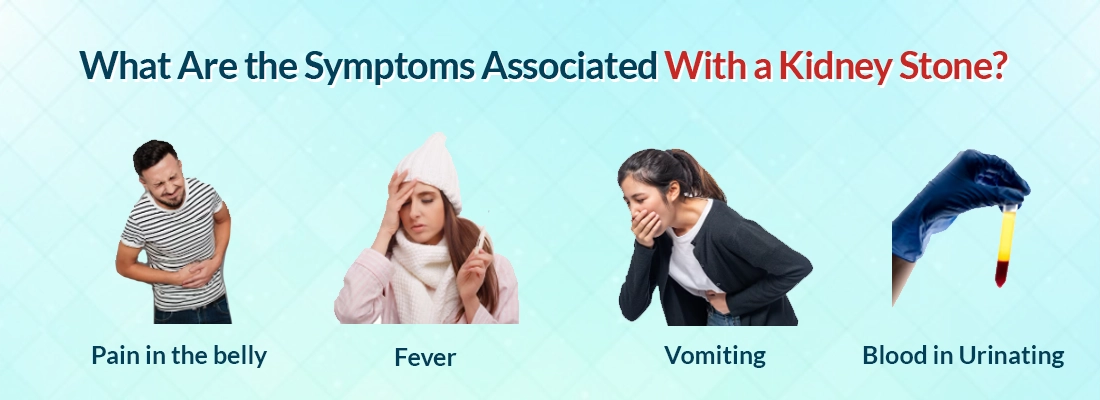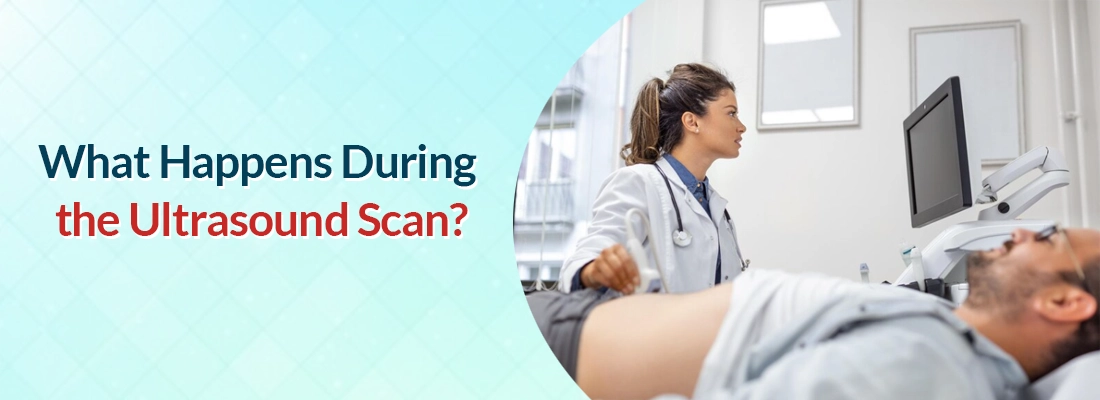
Kidney stones are calcifications that might get deposited anywhere in the body such as the kidney. In this blog, we will understand the importance of an ultrasound scan.
Kidney stones are basically calcifications or crystals which form by aggregates of minerals and proteins present in urine. These crystals can get lodged in various parts of the body such as prostate, bladder, urinary tract which may cause pain in lower back, blood while urinating, fever, chills,and vomiting also.
If the stones present in the bladder or urethra are small enough, they might get passed out with no noticeable pain or discomfort. The larger stones sometimes need a surgical intervention as well.
How Can the Kidney Stones Be Seen?
There can be various approaches to evaluate and diagnose you for kidney stones. Imaging is a correct and precise representation of the inside of the body which may show kidney and other stones in its image. Some types of imaging are mentioned below
- Abdominal and pelvic CT scan- The most radio and quick imaging method for visualising and locating the presence of a kidney stone is a CT scan of abdomen and pelvis. A CT scan can provide a detailed and precise scan of images of kidney, ureters, bladder and urethra, which can help your doctor to visualise and identify a stone and its location..
- Intravenous pyelogram (IVP)- Intravenous Pyelogram uses an iodinated contrast medium which is injected inside your body by veins for the evaluation of your renal system. It is a type of X-ray examination method which helps in visualising the urinary system.
- Abdominal and pelvic Ultrasound- An ultrasound technique uses sound waves to provide detailed pictures of internal organs of the body. These can be used to determine and visualise any stones if present in real time.
- Urine tests - Urine can be studied in suspected patients to look for blood cells and crystals presence in the urine. These can be indicative of stone presence in the body
- Blood tests- Your kidney health might get affected if you have a kidney stone, which can be evaluated by certain blood tests
- Kidney function tests- Kidney function tests can reveal a lot in regards to telling about kidney stones.
What Are the Symptoms Associated With a Kidney Stone?

You might not have any symptoms at all if the stone is of smaller size, but the symptoms might start to show as the stone progresses in size.the symptoms generally start and stop suddenly such as-
- Pain may occur in the belly or the sides of the back
- Pain can be radiating which might migrate to the groin area (groin pain), or testicles pain in men, labia/vaginal pain in women.
- Occasional fever
- Fever with chills sometimes
- Feeling nausea or vomiting
- Change in the colour of urine
- Blood may come while urinating
- Pain while urinating
- Burning feeling while urinating
- Urine might smell bad
- Urine might look cloudy
What Happens During the Ultrasound Scan?

- You will be asked to remove your clothing, jewellery and other objects from the area which is to be scanned and which can interfere with the scan.
- If you are asked to change clothes, you will be given a hospital gown to wear
- After that you will be asked to lay on a scan table
- An ultrasound gel will be placed on the area of your body which is going to be examined with USG
- A transducer device is used to scan, which sends ultrasound waves and the USG machine catches the signals and analyses the information from the sound waves.
- The Ultrasound machine produces images of the internal structures and displays them on the screen which can be stored digitally.
- Usually scans are made with the bladder being full, you might be asked to empty the bladder to take an empty bladder scan as well.
- Once the scan and evaluation is complete, the gel is wiped off and you are asked to come out of the scan table.
- The scan reports are generated and given to you.
What If A Kidney Stone Is Detected?
- If the kidney stone is small enough and your doctor thinks that it might get passed out by itself
- You can go home ‘
- Some medicines might be given for pain and nausea
- You will be asked to drink as much water as you can to get the stones passed out early
- You might be asked to watch your urine to see if kidney stone comes and inform the hospital that it has passed.
- If your doctor thinks the stone is large enough and wouldn't be able to get passed out with urine-
- You might be asked to stay in the hospital for further treatment
- You might need to consult with a specialist to get the stone removed
- If you are having uncontrolled nausea and vomiting you might need to stay in the hospital.
When to Contact a Medical Professional?
When the above mentioned symptoms get worsened or you feel you are having more than 1 2 symptoms which are mentioned above, if you are having severe pain, you should immediately connect to a doctor and get yourself diagnosed. You can directly approach a diagnostic centre for further guidance and getting your USG scan done. At Ganesh diagnostic and imaging centre, we offer low cost Ultrasound Scans.
It is always wise to choose a diagnostic centre near your, which can offer multiple and all diagnostic tests under one roof itself.
At Ganesh Diagnostic and Imaging Centre, we are known for providing excellent service and care to its patients for decades. Lakhs of satisfied patients over the years!
Ganesh Diagnostic and Imaging Centre is a one-stop solution for getting all kinds of scan done, as all services are available under one roof.
It has been an established and renowned diagnostic centre since 2001.
Their excellence is backed by NABH and NABL Accreditations.
NABH accreditation is proof of the highest standard of care and service provided to the patients. NABL accreditation reflects the competency of laboratories and equipment based on some national and international standards.
Test report is available digitally too.
The aim of GDIC is to provide world’s finest technology at the lowest price.
The rates of scans are reasonably priced. Ganesh Diagnostic and Imaging Centre also offers FLAT 50% OFF on ultrasound scans
Patients can rely upon ultrasound scan reports as reports are 100% accurate.
Get a Free Consultation From Our Doctor
- Contact Details- Dr Ravin Sharma, MBBS, MD Radiologist
- Phone number- +91 9212125996
- Availability- 24*7*365
Frequently Asked Questions
Can kidney stones be detected by USG?
Usg- ultrasound is an imaging technique which can represent the original body internals as it is in its scan images. Other imaging techniques such as a CT scan also do the same. These imaging tests are very much capable of showing the stones if present in any part of the body.
What is the cost of kidney stone Ultrasound?
The cost of ultrasound depends on many factors such as the place where you live, the availability of the diagnostic centre near you, the part for which the exam is being conducted. It also varies from one centre to another. The price generally varies from 1200-3000 INR.
Is it ok to leave the stone as it is?
If a stone is of visibly small size, it might get passed out by itself while urinating. But sometimes it can get bigger in size which may cause severe problems such as severe pain, kidney damage, urinary tract infections, or even kidney failure. So it is always better to get corrective and treatment measures as soon as you get to know that you have kidney stones.
What is the best medicine for kidney stone pain?
There are several painkillers which usually should be given and prescribed by your doctor but there are certain over-the-counter drugs as well which can relieve you of the pain for example, ibuprofen, naproxen, acetaminophen (tylenol)
What food to avoid in kidney stones?
Foods which have high levels of oxalate levels should be avoided such as peanuts, spinach, beets, swiss chard, chocolate and sweet potatoes. Avoiding certain food items can help prevent formation of calcium oxalate stones leading to kidney stone.










